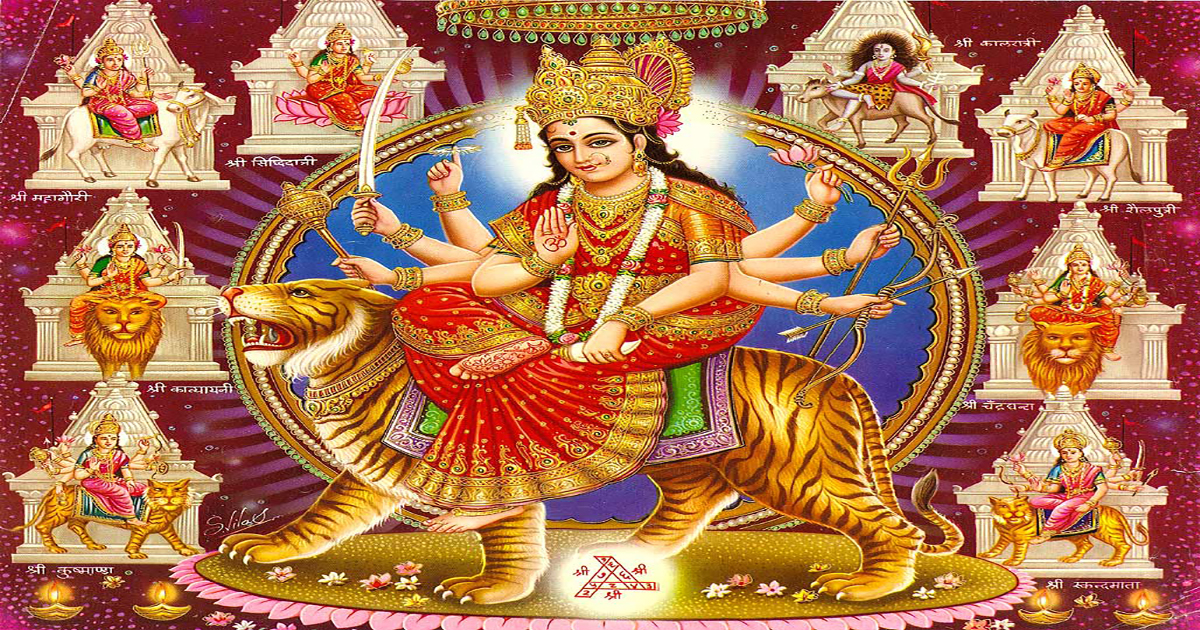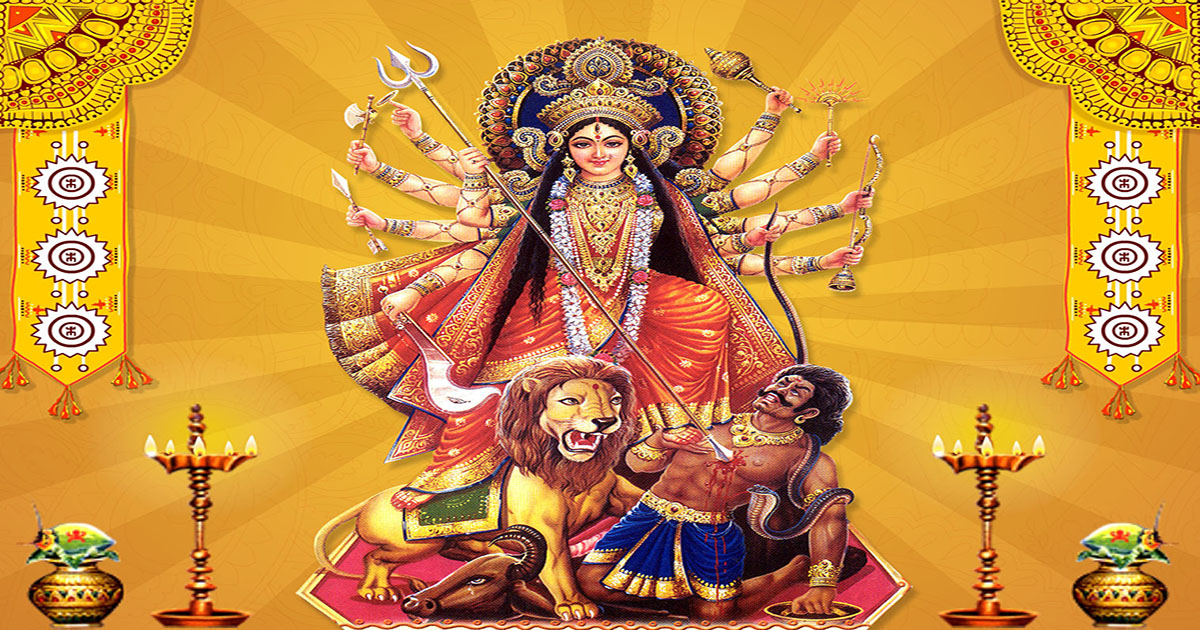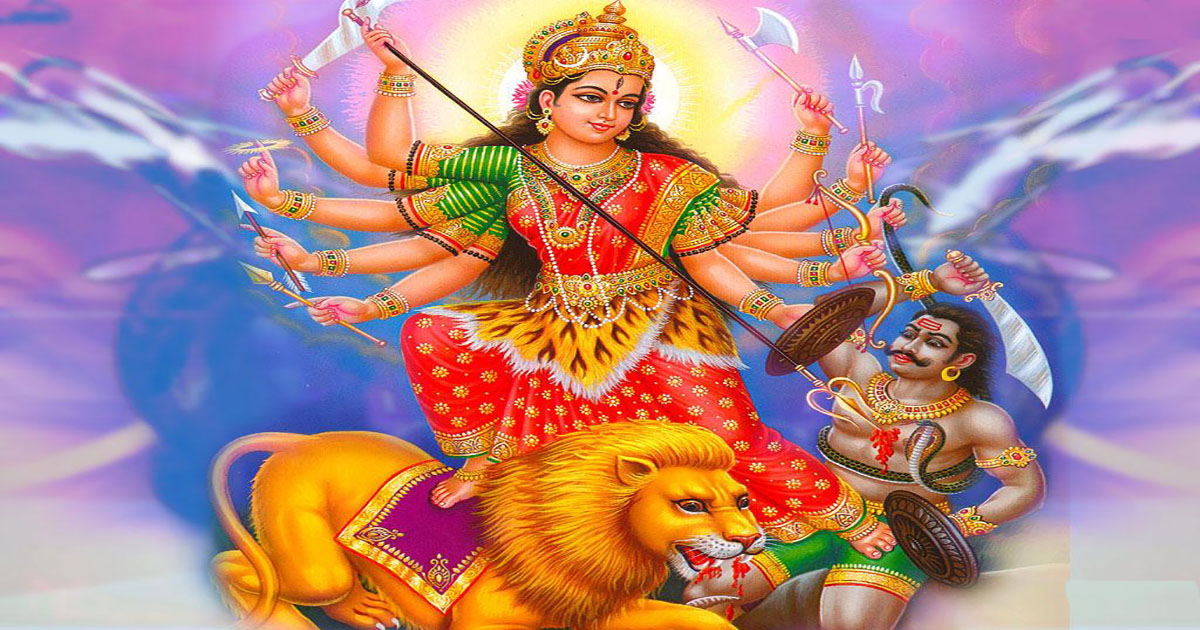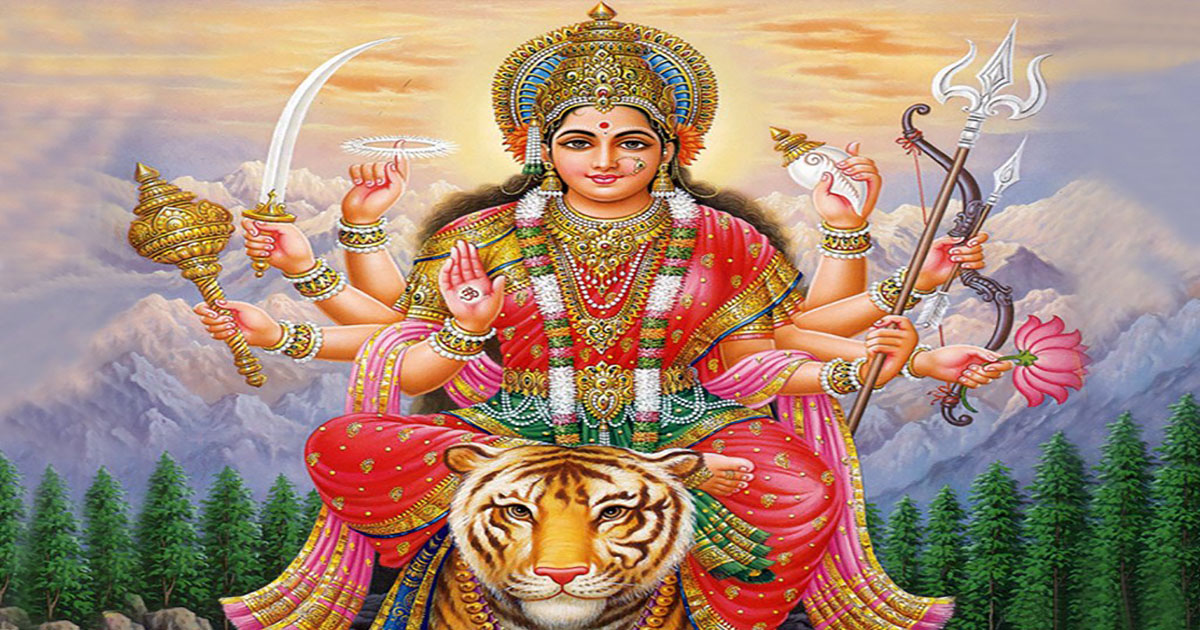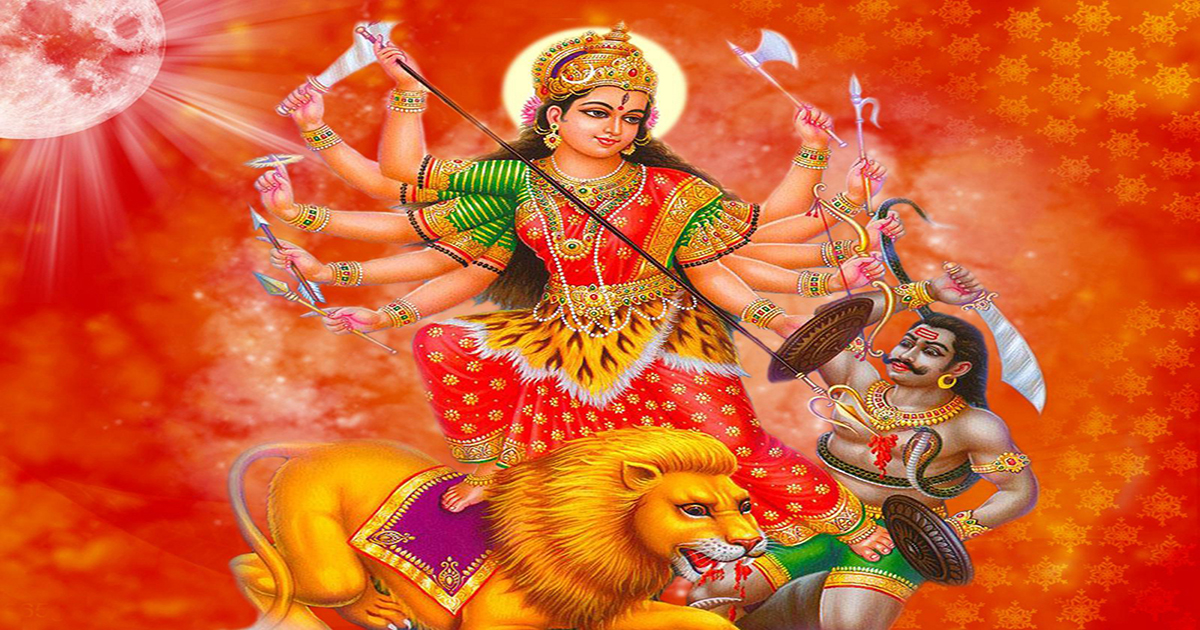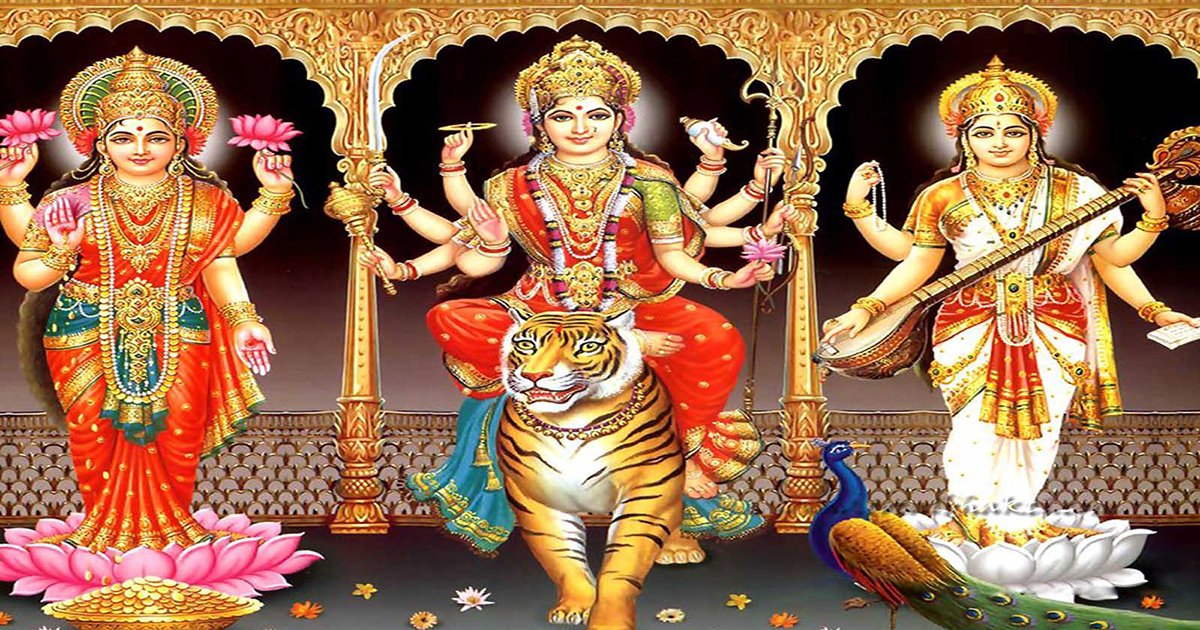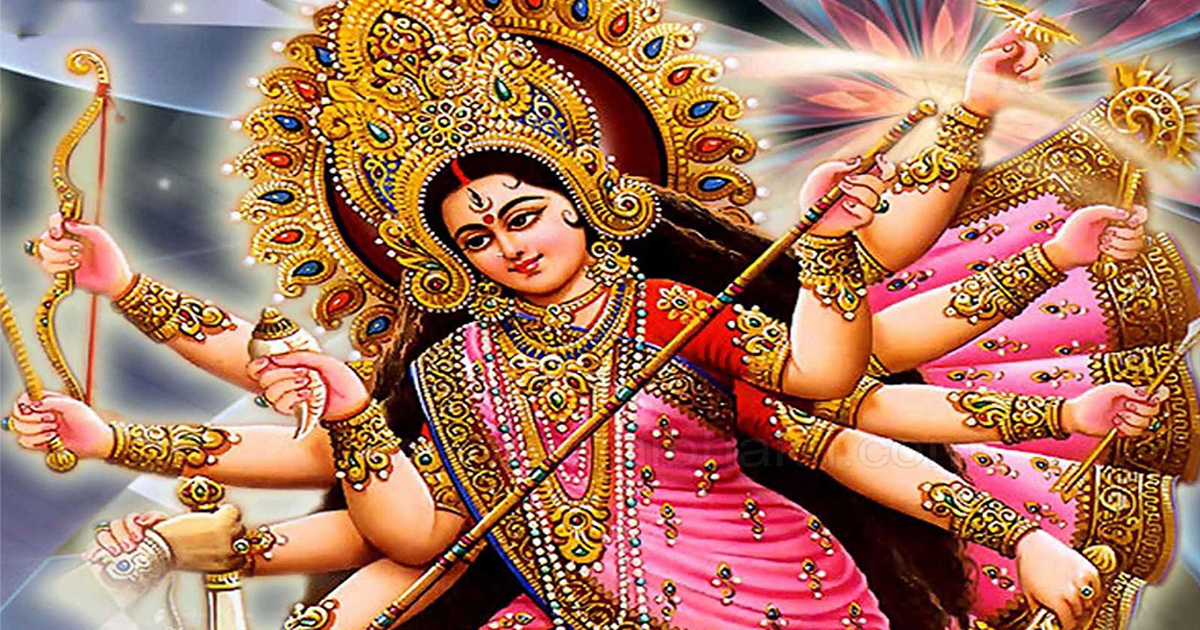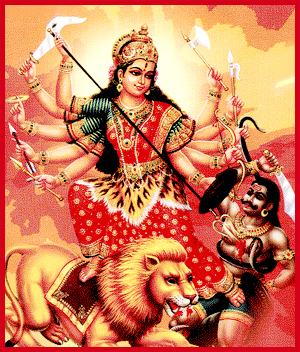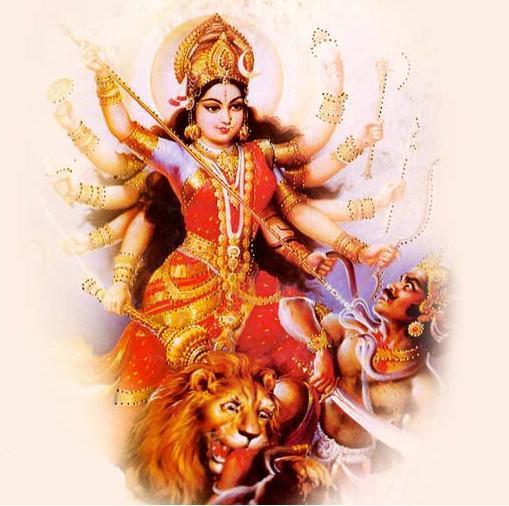Goddess Durga represents the power of the Supreme Being that preserves moral order and righteousness in the creation. The Sanskrit word Durga means "the one who eliminates sufferings." According to the Devi Mahatmya Mother Durga was created as a warrior goddess by the combined power of Lord Brahma, Lord Vishnu and Lord Shiva to kill Mahishasura. Durga is depicted as having eight hands. In each hands she holds a weapon.
The conch shell in Durga's hand symbolizes the 'Pranava' or the mystic word 'Om', which indicates her holding on to God in the form of sound.
The bow and arrows represent energy. By holding both the bow and arrows in one hand "Mother Durga" is indicating her control over both aspects of energy - potential and kinetic.
The thunderbolt signifies firmness. The devotee of Durga must be firm like thunderbolt in one's convictions. Like the thunderbolt that can break anything against which it strikes, without being affected itself, the devotee needs to attack a challenge without losing his confidence.
The lotus in Durga's hand is not in fully bloomed, It symbolizing certainty of success but not finality. The lotus in Sanskrit is called "pankaja" which means born of mud. Thus, lotus stands for the continuous evolution of the spiritual quality of devotees amidst the worldly mud of lust and greed.
The "Sudarshan-Chakra" or beautiful discus, which spins around the index finger of the Goddess, while not touching it, signifies that the entire world is subservient to the will of Durga and is at her command. She uses this unfailing weapon to destroy evil and produce an environment conducive to the growth of righteousness.
The sword that Durga holds in one of her hands symbolizes knowledge, which has the sharpness of a sword. Knowledge which is free from all doubts, is symbolized by the shine of the sword.
Durga's trident or "trishul" is a symbol of three qualities - Satwa (inactivity), Rajas (activity) and Tamas (non-activity) - and she is remover of all the three types of miseries - physical, mental and spiritual.
Mother Durga is worshipped during Navraatri in the spring and the fall for nine nights. The first three nights is worship to mother Kali, the second three nights to mother Lakshmi and the third to mother Saraswati. She has nine forms, which are Shailaputri, Bharmacharini, Chandraghanta, Kushmanda, Skanda Mata, Katyayani, Kaal Ratri, Maha Gauri, and Siddhidatri.
Durga, also called Divine Mother, protects mankind from evil and misery by destroying evil forces such as selfishness, jealousy, prejudice, and ego.
